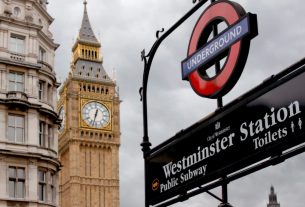Rishi Sunak delivered his second Budget as chancellor with a further £65 billion boost for businesses and workers hit by the pandemic, but the focus has been on the biggest tax rises for half a century.
The Financial Times labels the budget a “spend now, tax later Budget” while the Conservative supporting Telegraph headlines their story, “Five years of tax pain”, and the Times says “Rishi Sunak lays out highest taxes in 50 years to fund recovery”.
The Guardian’s take runs under the headline: “Spend now, pay later: Sunak flags major tax rises as Covid bill tops £400bn”, and the Independent’s wordy strap line states: “Bill for coronavirus support tops £400bn as Rishi Sunak says UK will be paying for decades to come”.
Labour leader Sir Keir Starmer said the budget only “papered over the cracks” and slated the chancellor for not having a plan for the NHS or social care, while Ian Blackford, the SNP leader at Westminster gave his assessment, telling the Commons: “Three million people ignored and abandoned by a prime minister and a chancellor that couldn’t care less [about them].”
Sunak said he wanted to be honest and upfront with people – a message he repeated at a 5pm press briefing. Among the headline grabbing measures of his budget are:
- extending furlough (which has already cost £54 billion and supported more than 11 million workers since April 2020) for another six months;
- a rise in corporation tax from 19% to 25% to be introduced in 2023 for larger businesses, and described in the Financial Times as “Sunak’s £17bn City raid”;
- the extension of the stamp duty and business rates holidays;
- a new government guarantee for first time house buyers widening the number of 95% mortgagees available for properties worth up to £600,000;
- the retention of the £20 per week Universal Credit uplift for six months and a one-off £500 payment for people on working tax credits;
- freezing the income tax thresholds for five years after April’s rise to £12,570 and £50,270, which will result in a million more people paying income tax by 2026 and a tax rise “by stealth” for workers pulled into higher tax rates through inflation;
- the self-employment income support scheme SEISS will continue.“As the tax return deadline has now passed, 600,000 more people, many of whom became self-employed last year, can now claim the 4th and 5th grants,” confirmed Sunak.
However the fourth SEISS grant will not be claimable until late April, with a fifth grant available in July.
“That will be a blow for many of the self-employed who are desperate for the money now – and relatively it is much later in the schedule than previous grants,” tweeted MoneySavingExpert Martin Lewis, whose thread was full of replies from self-employed people alarmed and dismayed by the delay in getting the grant.
Starmer – ‘We needed to reward our key workers’
Labour leader Sir Keir Starmer, responded to the chancellor’s budget and told the Commons: “After the decisions of the last year and the decade of neglect, we needed a budget to fix the foundations of our economy, to reward our key workers, to protect the NHS, and to build a more secure and prosperous economy for the future.
“Instead, what we got was a budget that papered over the cracks rather than rebuilding the foundations. A budget that shows the government doesn’t understand what went wrong in the last decade or what’s needed in the next.”
Starmer said that while Sunak may think it’s “time for a victory lap”, his budget “won’t feel so good for “ the key workers having their pay frozen, businesses swamped by debt, families paying more council tax, the millions of unemployed and those fearing losing their jobs.
“And although the chancellor spoke for nearly an hour, we heard nothing about a long term plan to fix social care,” Starmer continued. “The chancellor may have forgotten about it but the Labour party never will.”
‘A test of character for the chancellor and he failed it’ – Dodds
The Labour leader castigated the chancellor for having no plan to fix the NHS or social care, which he said would be central to any Labour budget, and added: “Behind the spin, the videos and the photo-ops we all know the chancellor doesn’t believe in an active and enterprising government. We know he’s itching to get back to his free market principles and to pull away support as quickly as he can.”
Shadow chancellor Annelise Dodds said the “Budget was a test of character for the chancellor” and “he failed it”, pointing out there was “no mention of key workers, no mention of social care, no mention of high streets, no mention of sick pay, no mention of inequality”.
‘Last year’s clapping will have to pay this year’s bills’
Angela Rayner, deputy leader of the Labour party, tweeted: “Have I missed the bit where the Chancellor announced a pay rise for health and social care workers? I suppose last year’s clapping will have to pay this year’s bills.”
Rayner added: “A year into a pandemic the Chancellor’s Budget didn’t include a pay rise for NHS and social care staff who have got us through this crisis, didn’t mention social care and didn’t even mention sick pay.”
In a subsequent post, Rayner reminded: “And @RishiSunak cut Statutory Sick Pay today, too.”
Hancock thinks it is ‘excellent’
However, some were mightily impressed by the chancellor’s speech, not least his cabinet colleague, health secretary Matt Hancock, whose new pinned tweet states: “An excellent #Budget2021 by @RishiSunak helping to build back better from this pandemic. The vaccine is our route to normal. Delighted we’re investing an extra £1.6 billion to keep people safe & ensure we are prepared for the future”.




